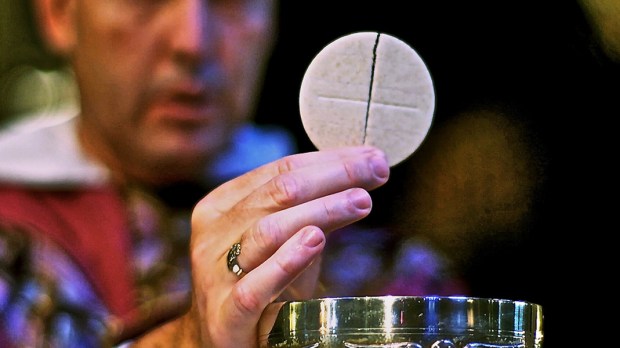There are people living in Sharpsburg, Maryland, so I’ve read, who “can tell you everything about the battle as if it happened to them.” The man who said that was referring to the descendants (he was one of them) of those ― eight generations previously in September 1862 ― who found themselves swept up in the great Battle of Antietam Creek (or the Battle of Sharpsburg as named by Southerners). One single day of fighting resulted in 23,000 dead, wounded and missing. It’s been called “a gash in history that is still healing.”

There was a Truth that was true, but it was almost always shrouded, somehow just beyond reach. His characters possessed a visionary sense of being in touch with some vast reality. They were reaching for it, and it was calling to them.
In his implausibly titled novel Radio Free Albemuth, published after his death, he has a dead-on portrayal of Christian memory:
“Anamnesis, it was called: abolishment of amnesia, the block that keeps us from remembering. We all have that block. There’s a Christian anamnesis, too: memory of Christ, of the Last Supper and the Crucifixion. In Christian anamnesis those events are remembered in the same way, as a real memory. It’s the sacred inner miracle of Christian worship; it’s what the bread and wine cause. ‘Do this in remembrance of me,’ and you do it, and you remember Jesus all at once. As if you had known him but had forgotten. The bread and wine, partaking of them brings it back.”
I have never found a better liturgical description of what is going on in the Mass. The Lord’s Last Supper becomes “a real memory” for us, a real event we live through and remember it as vividly as if we had lived it but yesterday. It isn’t something Jesus did with some his disciples in Jerusalem once upon a time. It is something he does with us, his disciples in these times.
We join him in the upper room. It is we to whom he speaks when he says he has longed to eat this Passover with us. He speaks to us when he says one of us will betray him, and it is to us he says he will not drink again from the cup until he drinks it anew in the kingdom, ushered in for us.
We live the whole story, beginning to end, and unexpectedly it becomes our story, as if it had happened to us. It sneaks up on us but we find it is we, ourselves, now who are under discussion. No wonder we remember it so clearly.
And suddenly I remember another phrase. Maybe it’s s food fad from the 1960s or the whole food diet, or the earlier catabolic diet craze, or maybe it was Grandma who said it first: “Remember, you are what you eat.”
This piece has appeared several places since I first wrote it. Due to an unhappy medical thing I haven’t been able to produce much else originally. So I’m republishing pieces I like here.












